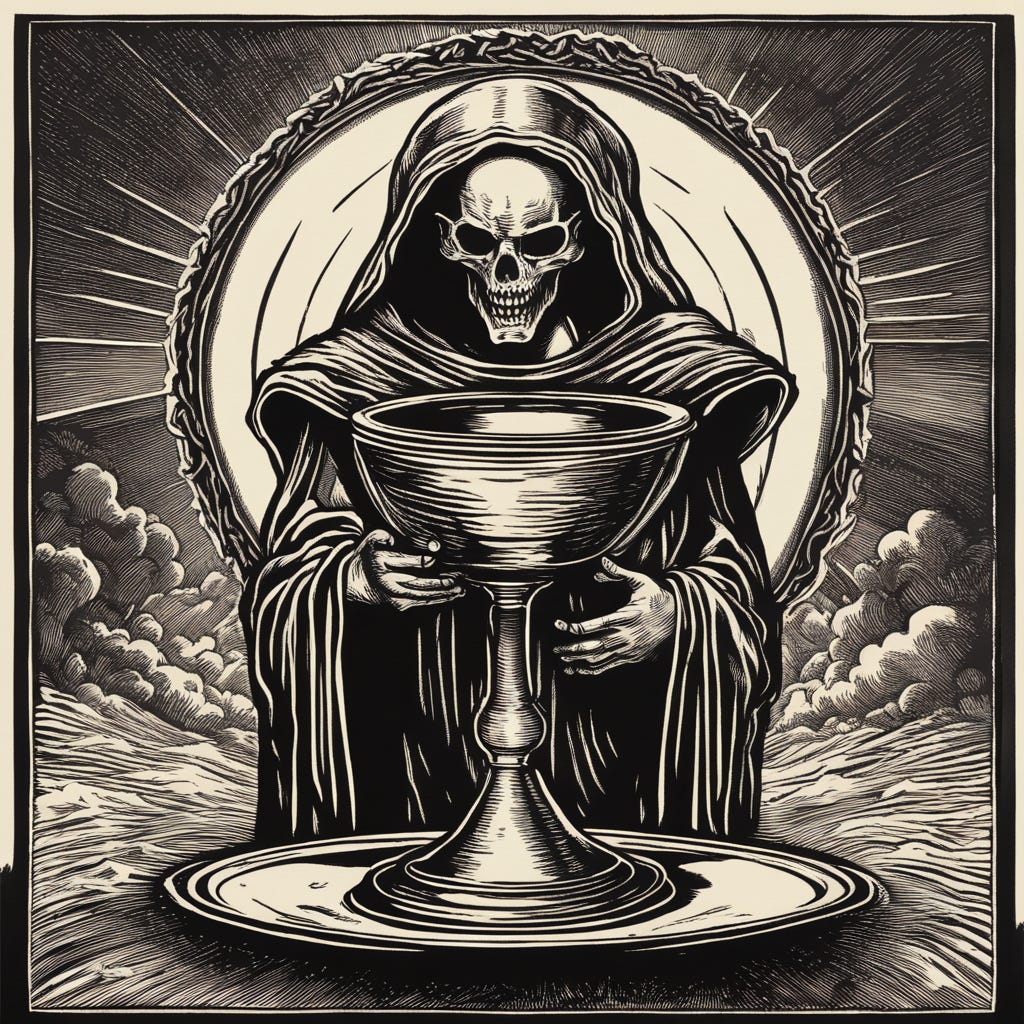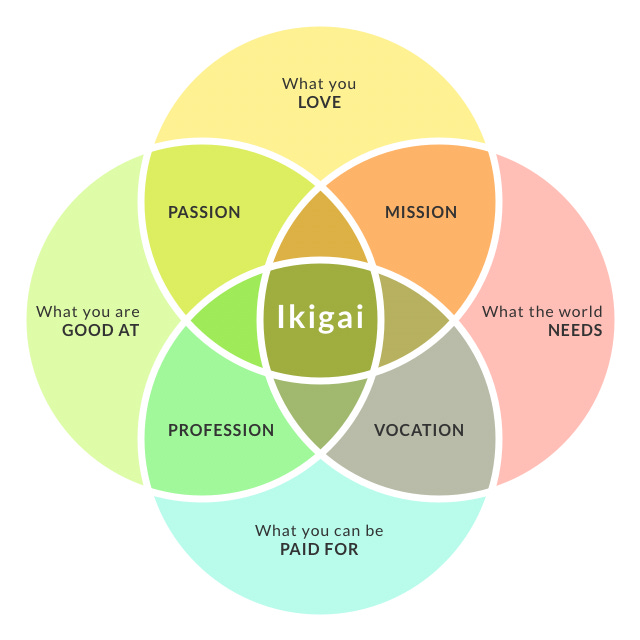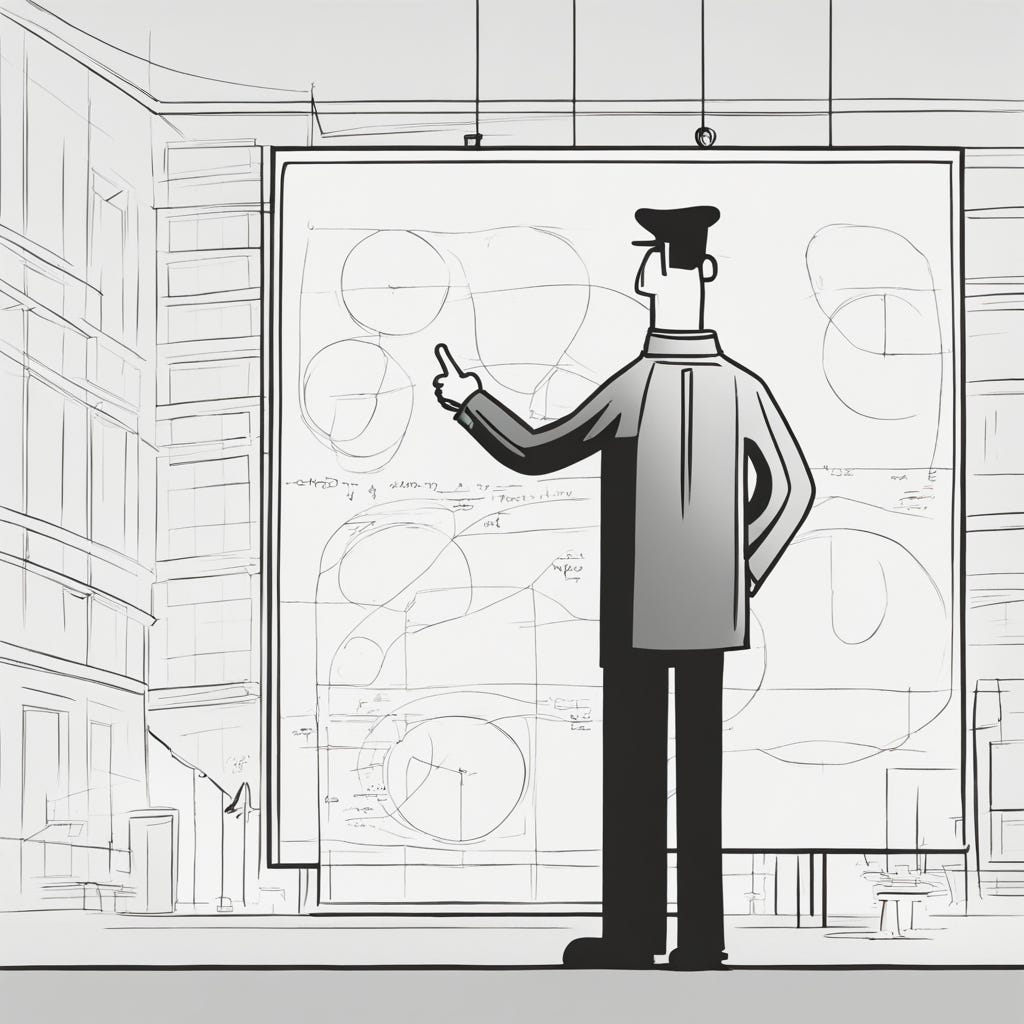16. Let's Please Drop the Ikigai Nonsense
Life Purpose Isn't a Market Niche

I'm in the process of building out my platform on X. X is an interesting space.
For years, I have "hated social media."
I smugly deleted Facebook and my old Twitter account years ago.
That was then, this is now. I’m back, and starting from scratch.
Well, I still hate social media. I agree with Tristan Harris's take on the algorithm (both for AI and social media) as a "race to the bottom of the brain stem." Social media has proven to be bad for humanity on the whole.
But, like many things, it can also be good for you. It's what you make of it.
Enter Ikigai
Thanks to social media, we're all very well familiar with "the feed" -- the mooing stream of debris-content. All new, all hype, all now.
Amidst my feed, I see the odd ikigai diagram.
Ikigai diagrams look like this:
These diagrams are usually shared alongside the bold claims of one life coach or another who can help you find your life calling.
Other diagrams come alongside people boldly claiming to have found their ikigai in helping organize the closets of 30-something high achievers.
Caveat: I don't really know what ikigai means.
I do know that a Venn diagram is not the answer to confused human incarnation on Earth, especially when one of the bubbles in the Venn diagram has to do with your market positioning.
You are a unique immortal soul, here for a time in this life.
I think, ser, when you say "purpose," you mean "entrepreneurial niche."
Let's cut to the chase here.
Why Not Ikigai?
Because it’s a design for a compromised life.
The question of “life purpose” should remain uncompromised. When you contort it into a practical process, you lock yourself in a limbo of projected ideals. You may make progress, but it’s largely imaginary.
A person does not need to be market-validated to feel justified for being here. I mean, talk about externalizing your value center.
This is also the sort of nonsense that tricks people into believing that companies have a right to expect employees to be die-hard about their role, to believe themselves truly born for it, and to appropriate their personal social media and expect them to evangelize about the company as if the company’s mission and vision were their own.
It angers me because it's insidious. The worst lies are closest to the truth. I have often circled the drain of an Ikigai-seeking moment, wondering how to make sense of life, the universe, and everything. And I think of the hundreds of millions of deeply compromised people trying to force the square peg of their heart's desire into the round (black) hole of some career. The ikigai koolaid would keep them trapped in the matrix of easy definitions.
We can fix this by making a small adjustment to the diagram.
Ikigai is a handy tool for entrepreneurs to find a palatable market niche. It’s useful for someone who says, “I’m good at many things. What's a slightly better way of thinking about my compromised situation?”
How you engage professionally will always be a distinct category from who you are and why you are here. Those are big questions that ought to remain big. Rather than simplify the quest, let’s kindle the desire to enlarge ourselves.
Competition is by nature divisive, separative, and exclusionary. In a competitive market, no one wins.
There is competition in the marketplace. There is no competition in being who you are.
Towards Co-Creative Uncertainty
The popularity of ikigai speaks to our desire for easy answers.
But making the world more co-creative is not as simple as getting everyone to click into place within a Venn diagram.
Becoming more co-creative means valuing the self’s quest for goodness and beauty. In yourself and equally in others.
We get there by being curious and enthusiastic about our endeavors, no matter what because it's not only about the work but about how we engage with it.
Doing what you love does not guarantee success, but it does ensure a worthwhile moment. Love is an essential prerequisite for finding fulfillment in outer success.
I have never loved a piece of writing that the author didn't also enjoy.
Those who have outer success but lack inner success can most discern the value of inner success.
We can completely escape the divisive marketplace when we embrace creativity, who we uniquely are, and what we value. In this marketplace, you don't lose anything by helping others.



